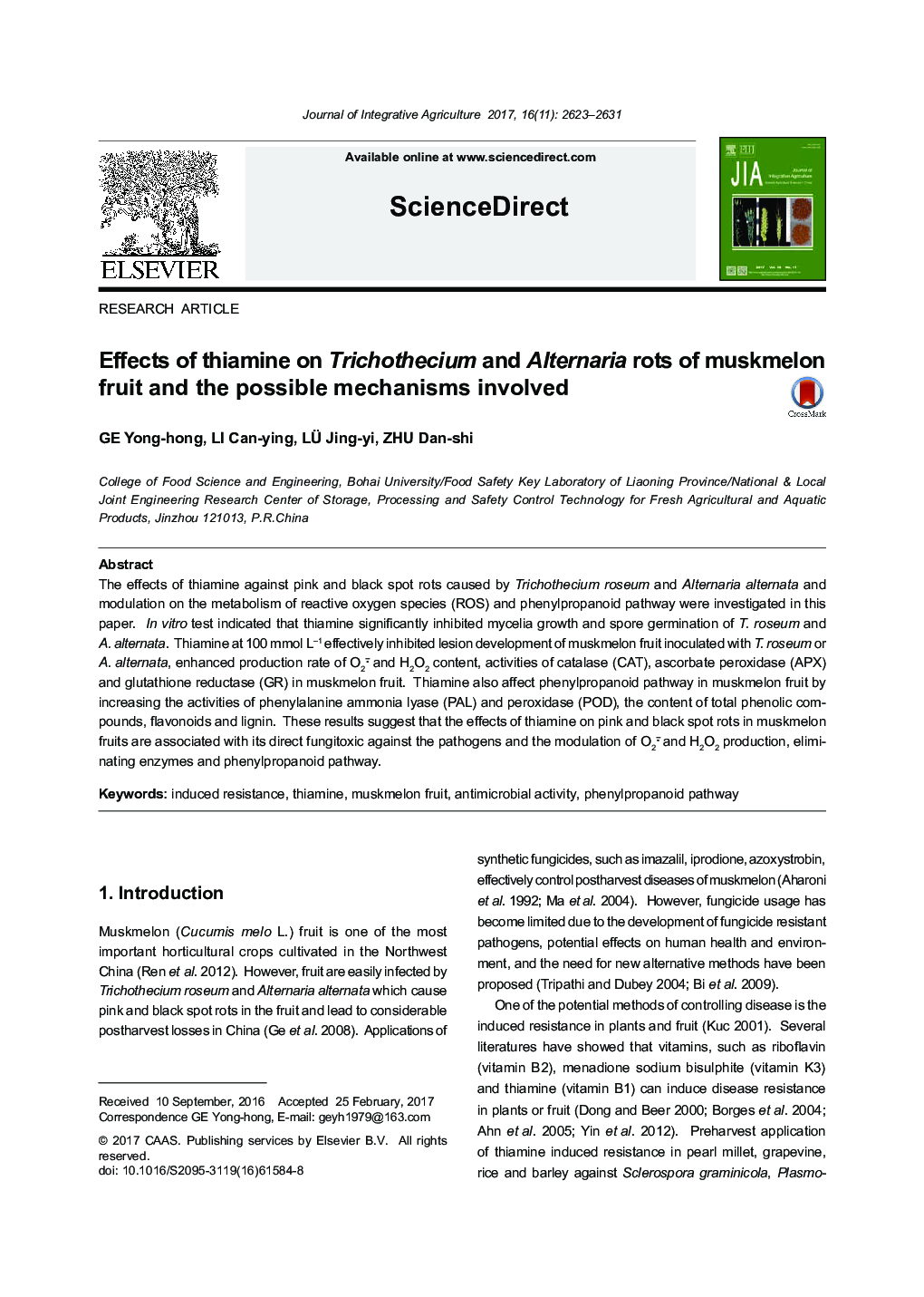| Article ID | Journal | Published Year | Pages | File Type |
|---|---|---|---|---|
| 8875822 | Journal of Integrative Agriculture | 2017 | 9 Pages |
Abstract
The effects of thiamine against pink and black spot rots caused by Trichothecium roseum and Alternaria alternata and modulation on the metabolism of reactive oxygen species (ROS) and phenylpropanoid pathway were investigated in this paper. In vitro test indicated that thiamine significantly inhibited mycelia growth and spore germination of T. roseum and A. alternata. Thiamine at 100 mmol Lâ1 effectively inhibited lesion development of muskmelon fruit inoculated with T. roseum or A. alternata, enhanced production rate of and H2O2 content, activities of catalase (CAT), ascorbate peroxidase (APX) and glutathione reductase (GR) in muskmelon fruit. Thiamine also affect phenylpropanoid pathway in muskmelon fruit by increasing the activities of phenylalanine ammonia lyase (PAL) and peroxidase (POD), the content of total phenolic compounds, flavonoids and lignin. These results suggest that the effects of thiamine on pink and black spot rots in muskmelon fruits are associated with its direct fungitoxic against the pathogens and the modulation of and H2O2 production, eliminating enzymes and phenylpropanoid pathway.
Related Topics
Life Sciences
Agricultural and Biological Sciences
Agricultural and Biological Sciences (General)
Authors
Yong-hong GE, Can-ying LI, Jing-yi LÃ, Dan-shi ZHU,
